European social law 6 results
-
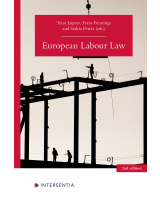
European Labour Law (2nd edition)
Book | 2nd edition 2024 | Europe | Teun Jaspers, Frans Pennings, Saskia PetersThis book provides for a comprehensive overview of the various areas of European labour law: fundamental rights, free movement of workers and posting, equal treatment, a-typical forms of employment, collective bargaining and collective agreements, restructuring of enterprises and health and safety.
€238.00 incl. VATStudent price: €55.00 -

Le travail frontalier en Europe / Cross-border work in Europe
Réalités et défis / Realities and challengesBook | 1st edition 2023 | Europe | Rachid Belkacem, Franz Clément, Isabelle Pigeron-Piroth, Christian WilleLe travail frontalier est devenu au sein des territoires frontaliers en Europe, un important phénomène économique, social et humain dont cet ouvrage souhaite questionner les caractéristiques territoriales.
€87.00 incl. VAT -
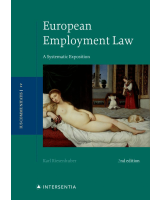
European Employment Law, 2nd edition
A Systematic ExpositionBook | 2nd edition 2022 | Europe | Karl RiesenhuberThis volume covers the complete scope of European employment law: its foundations in EU primary law and its various sources in EU secondary legislation, as well as the growing body of case law of the European Court of Justice.€231.00 incl. VATStudent price: €54.00 -
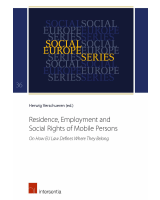
Residence, Employment and Social Rights of Mobile Persons
On How EU Law Defines Where They BelongBook | 1st edition 2016 | Europe | Herwig VerschuerenThis book discusses the issue of these links and, more specifically, the question of how EU law defines the link needed to obtain the right to reside in a Member State and the right to social and employment protection in that State.€100.00 incl. VAT -
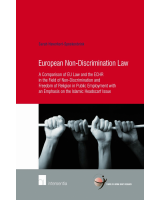
European Non-Discrimination Law
A Comparison of EU Law and the ECHR in the Field of Non-Discrimination and Freedom of Religion in Public Employment with an Emphasis on the Islamic HeBook | 1st edition 2012 | Europe | Sarah Haverkort-SpeekenbrinkContemporary multicultural issues in Europe raise the question whether the overlap between the non-discrimination regimes of the European Union (EU) and the Council of Europe in the field of public employment may lead to conflicting case law. Would the Court of Justice of the European Union (ECJ) and the European Court of Human Rights (ECtHR) address potential sex, race and religious discrimination in a similar manner or would the Courts take a different approach?€94.00 incl. VAT -
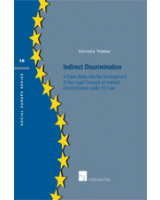
Indirect Discrimination
Book | 1st edition 2005 | Europe | Christa ToblerIntroduced into European Community law by the Court of Justice through its case law in the field of free movement of workers, the legal concept of indirect discrimination has evolved into one with far wider and greater relevance to many other areas of EC law as well. This book analyses the concept of indirect discrimination in a broad and comparative context, which encompasses both economic and social law.€134.00 incl. VAT